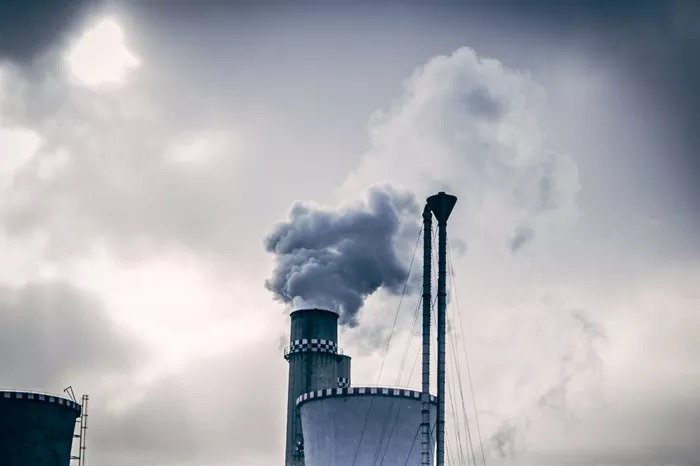World leaders are being urged to urgently redirect the trillions currently invested in fossil fuels to protect human health and ensure survival amid the severe impacts of climate change, according to the latest Lancet Countdown report.
This eighth annual Countdown, an independent assessment of progress towards the 2015 Paris climate agreement, emphasizes the critical need to prioritize global health risks to achieve a sustainable, equitable, and zero-emissions future. The authors advocate for “repurposing” the vast subsidies that currently support the fossil fuel industry as a means to fund this necessary transition. Since its inception in 2015, the Countdown has been released just ahead of the United Nations Conference of the Parties (COP) to draw attention to its urgent message. It is produced in collaboration with organizations including the World Health Organization and the World Meteorological Organization.
2023: A Record-Breaking Year for Health Threats
The report highlights that 2023 was the hottest year on record, characterized by persistent droughts, lethal heatwaves, and widespread natural disasters, which have had devastating effects on global health and livelihoods. The Lancet stated, “Hotter days—50 more than average—resulted in a staggering 167% increase in heat-related deaths among those over 65 compared to the 1990s.” Without the rise in global temperatures, demographic changes would have led to a 65% increase in such deaths.
Moreover, escalating temperatures resulted in a record loss of 512 billion potential labor hours globally in 2023, a 49% increase from the 1990-1999 average, translating to potential income losses of approximately $835 billion. Factors contributing to this loss include higher nighttime temperatures, which have disrupted sleep patterns for outdoor and factory workers, leading to a 6% increase in sleep loss compared to the 1986-2005 average.
Food insecurity has also risen dramatically, with an additional 151 million people experiencing moderate to severe food insecurity due to more frequent heatwaves and droughts in 2023. The previous year’s Countdown had already indicated that 127 million people faced food insecurity.
Despite these alarming trends, the report notes “persistent delays in adaptation” to climate change. As of December 2023, only 61% of countries committed to enhancing their health systems’ resilience had completed necessary vulnerability assessments, and just 52% had developed health adaptation plans.
Fossil Fuels Continue to Drive Climate Risks
The report criticizes oil and gas companies for their strategies aimed at expanding production, which undermine the goals established in Paris and jeopardize public health. It aligns with other analyses indicating that global energy-related carbon dioxide emissions reached an all-time high in 2023. By March 2024, the largest oil and gas companies were projected to exceed emissions compatible with a 1.5°C increase by 189% by 2040, up from 173% the previous year.
This trend is supported by substantial public funding, with fossil fuel subsidies amounting to $1.4 trillion in 2022. While climate action remains hampered by inadequate funding, fossil fuels continued to attract 36.6% of global energy investments in 2023. Many governments increased fossil fuel subsidies in response to soaring energy prices following Russia’s invasion of Ukraine.
Marina Romanello, Executive Director of the Lancet Countdown, emphasized the disconnect between health and climate change discussions. “Financial resources are still directed towards activities that undermine our health,” she stated. “Repurposing the trillions invested in fossil fuels could facilitate a fair transition to clean energy and ultimately benefit the global economy.”
However, the report notes a decline in the integration of health and climate change in public discourse. Mentions of these topics in UN General Debate statements fell significantly from 2022 to 2023, and only 47% of updated Nationally Determined Contributions (NDCs) referenced health.
Media coverage has similarly diminished, with a 10% decrease in newspaper articles addressing climate change that mention health from 2022 to 2023.
A Path Forward: Fund Health, Not Fossil Fuels
Despite the grim outlook, there are signs of progress. Deaths due to air pollution decreased by nearly 7%, from 2.25 million in 2016 to 2.09 million in 2021, with 59% of this decline attributed to reduced coal pollution, highlighting the health benefits of phasing out coal.
Investments in global clean energy are on the rise, and employment in the renewable sector reached a record 13.7 million in 2022, representing a 35% increase since 2016.
“Achieving an equitable and healthy future necessitates a transformative shift in financial systems, reallocating resources from fossil fuels to a zero-emissions economy,” stated Anthony Costello, co-author and co-chair of the Lancet Countdown.
Related topic:
What Kind Of Fossil Fuel Is Shale Gas?

